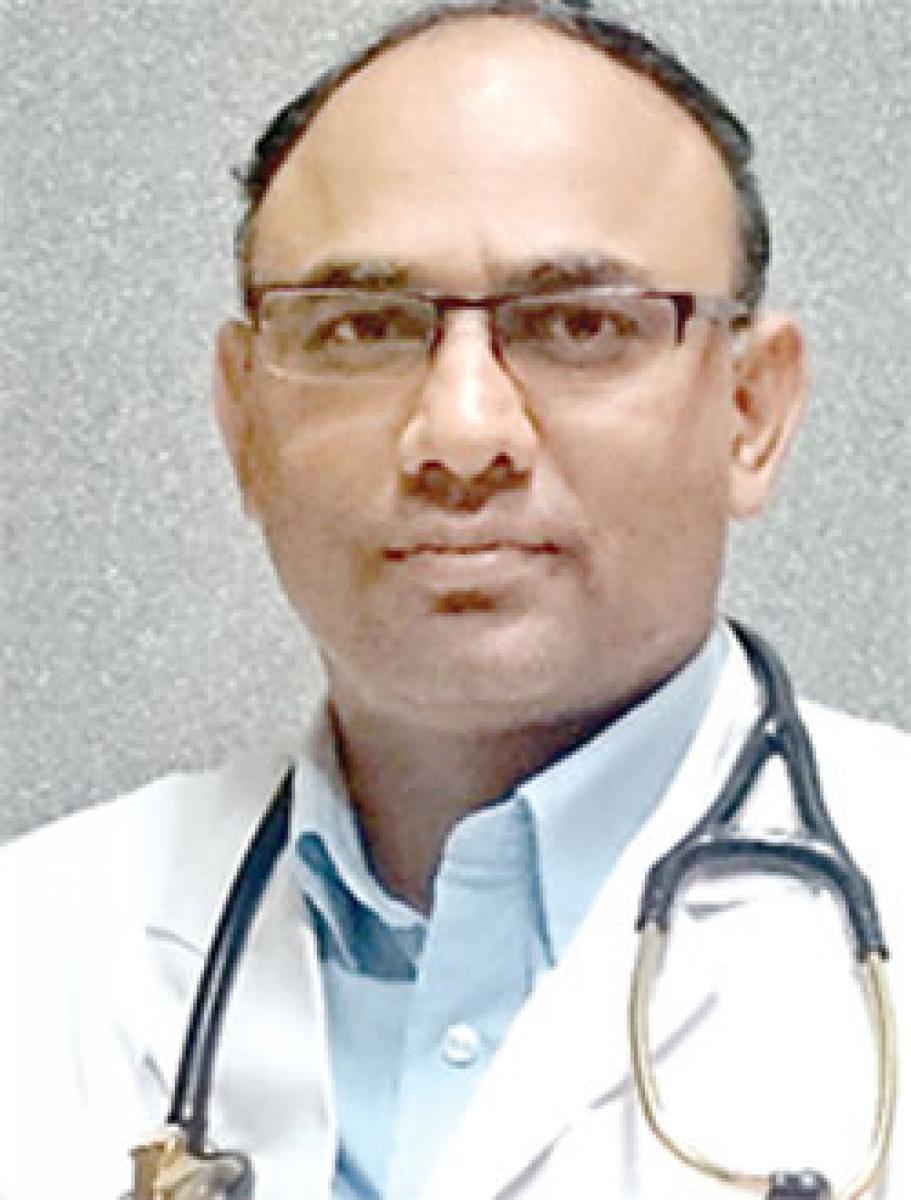Live
- Chandrababu Advocates Strict Measures for Social Welfare and Infrastructure Development in AP
- Show of brotherhood by Vijayan, Stalin at event to honour Dravidian icon
- District Collectors’ conference with CM begins
- Celebrations kick off in Saudi Arabia to welcome FIFA World Cup 2034
- Google Unveils Jules AI to Help Developers Fix Code Errors
- Bengaluru Techie’s Tragic Suicide Sparks Outrage Over Family Disputes and Legal Failures
- Crucial Union Cabinet meeting to discuss One Nation One Election
- Irrigation AE Nikhesh Kumar Arrested in Disproportionate Assets Case, Granted 4-Day Custody
- Your Daily Horoscope for December 12, 2024: Unlocking Mysteries of the Stars
- Hyderabad: 18-Month-Old Girl Dies After Being Hit by Car in Jawaharnagar
Just In

Diabetes is commonly known as high blood sugar levels. More significantly, though, it is a clinical syndrome that manifests as hyperglycemia caused by absolute or relative deficiency of glucose regulatory hormone, insulin. The lack of insulin affects metabolism of carbohydrates, proteins and fats and can cause significant disturbance of water and electrolyte homeostasis. In severe cases, death can result from acute metabolic decomposition.
.jpg) Diabetes is commonly known as high blood sugar levels. More significantly, though, it is a clinical syndrome that manifests as hyperglycemia caused by absolute or relative deficiency of glucose regulatory hormone, insulin. The lack of insulin affects metabolism of carbohydrates, proteins and fats and can cause significant disturbance of water and electrolyte homeostasis. In severe cases, death can result from acute metabolic decomposition.
Diabetes is commonly known as high blood sugar levels. More significantly, though, it is a clinical syndrome that manifests as hyperglycemia caused by absolute or relative deficiency of glucose regulatory hormone, insulin. The lack of insulin affects metabolism of carbohydrates, proteins and fats and can cause significant disturbance of water and electrolyte homeostasis. In severe cases, death can result from acute metabolic decomposition.
Diabetes Mellitus is mainly divided in to T1 DM (Type 1) and T2 DM (Type 2). T1 DM occurs in younger age group, which is insulin dependent. T2 DM is common in middle age to elderly age group, which is non insulin dependent. Diabetes in pregnancy is called as Gestational Diabetes.
In both the common types of diabetes environmental factors interact with the genetic susceptibility to determine which people develop the clinical syndrome. In addition, risk factors for development of diabetes include obesity, hypertension, sedentary life style, hyperlipidemia, pancreatitis and habits like alcohol consumption.
The prominent symptoms include thirst, dry mouth, poly uria (excessive urine), polyphagia nocturia, tiredness, fatigue, lethargy, purities valve, weight loss, genital candidiasis and difficulty in concentration.
Diagnosis
When the Random Blood Sugar (RBS) is more than normal a Glucose Tolerance Test (GTT) test is done to confirm the diagnosis (sugar levels > 200 mgdl). Once diabetes is confirmed further follow up is based on fasting and post lunch blood sugar and HBA1C (Glycosylated Hemoglobin) levels.
Normal ranges
• FBS - (110 - 125 mgdl)
• PLBS - (2 hours after food intake) up to 160 mgdl
• If RBS > 200 mgdl patient is diagnosed as diabetic
Microvascular
complications
1) Retinopathy/Cataract impaired vision
2) Nephropathy-Renal failure
3) Peripheral Neuropathy-sensory loss, motor weakness and pain
4) Autonomic Neuropathy-Gastrointestinal problems, Gastroparisis, altered bowel habit and Postural Hypotension
5) Foot disease, ulceration, Arthropathy
Macro vascular
complications
1) Coronary circulation- Myocordial infaction and ischemia
2) Cerebral circulation-Transient ischemic attack and Brain stroke
3) Peripheral circulation-Claudication Ischemia
Treatment
In patients with type 2 diabetes first line of therapy involves advice about dietary and lifestyle modification. Oral anti diabetic drugs are added in those who do not achieve glycemic targets or who have high blood sugars at diagnosis and high HBA1C.
In patient with T1DM urgent treatment with insulin is required. In parallel with treatment of hyperglycemia other risk factors for complications of diabetes need to be addressed including treatment of hypertension and dyslipidemia and advice on smoking cessation.
Physical exercise and education of patient is equally important as a part of treatment.
By:Dr Hari Charan G
(The author is Senior Physician at Sunshine Hospitals in Secunderabad.)

© 2024 Hyderabad Media House Limited/The Hans India. All rights reserved. Powered by hocalwire.com







